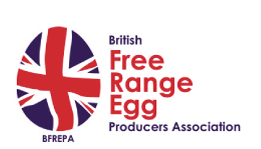UK May wheat futures are trading at more or less the same level as last week at £139/T plus/minus £1. The physical price remains pretty stable day to day, with currency and political developments being the main drivers in longer term, though the actual price level depends on the north-south distance from Hampshire.
Overall, this week EU wheat prices have shown a small gain due to weakness in the US currency; but still cannot successfully compete in the global export markets. Russia continues to dominate global wheat exports, with its best customer being the Egyptian grain buyer GASC, which purchased 120,000T this week. Again the lack of US wheat export potential is keeping US prices subdued. The USDA forecasts a decline in wheat exports of 10% compared with last year, with this year’s estimated to be 26.5 Mln T against last year’s 28.7Mln T - mainly to markets that Russia cannot reach. The global wheat market needs a crisis to help trade, and the keep the trade from being bored. So conveniently there is the threat of winter-kill and frost damage across most of northern Europe over the next few days, which may lift prices in this over-supplied market.
Following reports that the European Parliament is to allow the UK single market access post Brexit, Sterling was boosted for a short time this week by a document which outlined aspirations for an “association agreement” between the EU and UK. Further to this Michael Grove announced there is to be a consultation paper published on the future of agricultural policy within the 400 days remaining before Britain leaves the EU. With possible tariff charges, subsidy payments and migrant labour are all key to agricultural businesses, this report could be significant for post-March 2019.
Soya prices have shot up significantly for the last ten trading sessions but the rate of increase has slowed recently. Soya meal prices hit a new contract high this week at $385.5/short ton, so UK prices hit £348/T ex-port despite the weakness of the $. This move was mainly due to the trade and fund concerns about the Argentinian drought, with predictions of production losses of 18% to 47Mln T (from 56Mln T). The next significant rainfall is unlikely to be until the end of the month, which will be too late for a percentage of the growing crop (but how much?). The US hopes to capitalise on this by gaining export business currently dominated by South America. Brazil still maintains its position for the 17/18 crop at a record 115.6Mln T, 1% above last year’s record 114.2Mln T. AgRural recorded exports of soyabean for Brazil at 1.14Mln T so far for February and estimate end of month figures around 2.1Mln T (down from last year by 3.5Mln T). The US weekly report believes total Brazilian soya exports to be 37Mln T (42.7Mln T last year).
La Niña is being blamed for the dry conditions in Argentina as well as Brazil’s wet Mato Grosso state, which is delaying its harvest. Originally, the US National Weather Service expected La Niña to fizzle out by now (as is usual), but updated forecasts indicate that she may persist into March or April. Argentina last experienced a severe drought at this time of the year in 2008-2009, just at the crucial pod-filling stage of the soya crop’s development. There are indications that La Niña conditions may be strengthening in the equatorial eastern Pacific Ocean, adding further support to prolonged drier conditions in central Argentina. For raw material buyers, this is a worrying time, and hopefully rain will come in time. Although Brazil’s crop is a record, it is unlikely to make up for the potential losses in Argentina.
Talking of droughts: how about `The Great Chicken drought’? About half of the UK’s 900 KFC outlets have no chicken. On Valentine’s Day KFC changed its food distribution company from Bidvest to DHL, allegedly leading to the closure of one of Bidvest’s depots with 255 redundancies; and the opening of a new DHL depot with 300 new staff. DHL have inferred that the problem lies with their Quick Service Logistics software. Tower Hamlets Police are fed up and have tweeted the public: ‘Please do not contact us about the #KFCCrisis – it is not a police matter if your favourite eatery is not serving the menu that you desire’.




















